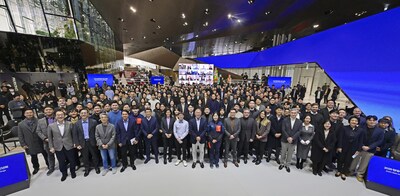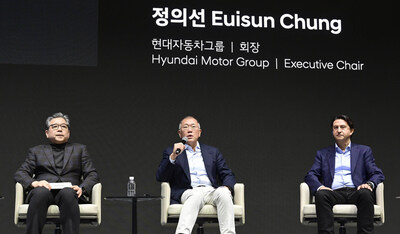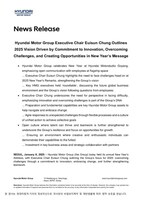Fintech PR
Water investment key to averting global conflict surge
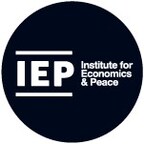
LONDON, Oct. 30, 2024 /PRNewswire/ — Today marks the launch of the 5th edition of the Ecological Threat Report (ETR) from international think-tank, the Institute for Economics & Peace (IEP). The report concludes that without concerted international action, accelerating ecological degradation will amplify social friction and conflicts worldwide. These challenges will be further exacerbated by climate change.
Key results:
- Ecological risks are intensifying due to climate change, population growth, and conflict, with a strong correlation between ecological degradation, poverty and the incidence of conflict.
- 50 countries, currently home to 1.3 billion people, face high or very high levels of ecological threat. The population in these nations is projected to increase to almost 2 billion by 2050.
- The ETR identifies 27 ecological hotspots countries: where extreme ecological risks intersect with low societal resilience, leaving them vulnerable to instability, conflict and humanitarian crisis.
- Of the 27 hotspot countries, 19 are in sub-Saharan Africa and four are in the Middle East and North Africa. Many are currently experiencing conflict or civil unrest.
- Conflict prevention in agro-pastoralist communities is strongly linked to the strength of local governance structures, with community-based approaches proving more successful than external interventions.
- Sub-Saharan Africa has the lowest irrigation rates in the world, with only 1.8 per cent of cultivated land being irrigated. There is substantial opportunity to relieve ecological pressure through improved water collection and management.
- An annual investment of $15 billion in water capture and agricultural enhancement initiatives to 2050 could lift food production in sub-Saharan Africa by 50%.
The 2024 Ecological Threat Report covers 207 countries and highlights a growing global crisis as ecological threats, climate change, poor governance, population growth and conflict intersect. The report identifies 50 countries, home to 1.3 billion people, facing high or very high levels of ecological threats. These countries, 82% of which are in Africa, are projected to see a 51% population increase by 2050.
Sub-Saharan Africa emerges as a particular area of concern. A recent severe El Niño-induced drought in the region has affected 68 million people, or 17% of the region’s population. The drought, which started in early 2024, has hit crop and livestock production, causing food shortages and damaging wider economies. Food prices are 25% higher than before the COVID-19 pandemic, further compounding access to food.
However, the region has the greatest potential globally to improve its food production capacity. For example, the average maize yield in Africa is just 1.9 tonnes per hectare, compared to the global average of 5.4 tonnes. Additionally, the region possesses 200 million hectares of untapped arable land. By implementing micro-water capture techniques and adopting improved agricultural practices, sub-Saharan Africa could substantially enhance its ecological resilience and food security.
Steve Killelea, Founder & Executive Chairman of IEP, said: “The world is at a critical juncture where ecological threats are increasingly intertwined with conflict risks, poverty and debt. Our research shows that targeted investments in water capture and agricultural practices could dramatically improve food security, increase local resilience, lessen conflict and alleviate forced migration.“
Ecological Hotspots
The ETR identifies 27 ecological hotspots: countries where high ecological risks intersect with low societal resilience. These hotspot countries face increased risks of instability, conflict, and humanitarian crises. The geographical distribution of these hotspots is heavily skewed, with 19 located in sub-Saharan Africa, four in the Middle East and North Africa, and the remaining four spread across Asia and the Caribbean.
- Sub-Saharan Africa faces the most acute ecological threats, driven by high levels of food insecurity, water stress, and rapid population growth.
- South Asia recorded the second-highest overall ETR score, driven by its vulnerability to natural disasters, which are the highest of any region.
- Europe and North America are the only two regions where no subnational areas face high or very high levels of ecological threat.
Hotspot countries tend to cluster geographically, which can lead to regional instability as ecological and humanitarian crises will encompass multiple countries. Spillover effects include population displacement, new cross-border conflicts, and disruptions to transportation networks and supply chains.
The severity of the situation is underscored by the fact that many hotspot countries are currently experiencing armed conflicts or civil unrest, highlighting the interplay between ecological threats, low resilience, and heightened risk of violence. Without addressing these challenges, the compounding effects of population growth, environmental degradation, and weak governance could lead to a cycle of increasing instability, particularly in regions already prone to conflict.
Governance & Water Management
Water risk is more closely tied to weak governance than water scarcity. For example, the UAE faces low water risk despite limited resources, while nearby Yemen struggles despite having more abundant water resources. The report highlights that an annual investment of $15 billion in small-scale water capture and related initiatives could substantially mitigate ecological risks in sub-Saharan Africa, with the potential to triple crop yields in some areas. This is crucial, as the region needs to more than double its cereal production to meet its basic food needs over the next 25 years.
The ETR also identifies potential solutions, particularly in water management and agricultural practices, that could significantly improve food security and economic prospects in vulnerable regions. Small-scale water capture projects like sand dams, rock runoff and dams in Africa show promising results, with a single $50,000 investment potentially irrigating up to 9 hectares and yielding a $180,000 return. Sub-Saharan Africa has approximately 34.2 million hectares of land with untapped irrigation potential, which could be utilised using less than 6% of the region’s renewable water resources.
Steve Killelea added: “It’s crucial that governments and international organisations prioritise these interventions to build resilience and prevent future conflicts. Strengthening local governance and community-based conflict resolution mechanisms has proven more effective than external security interventions in mitigating tensions before they escalate into violence.“
Climate change acts as a threat amplifier, exacerbating existing tensions in areas with a history of conflict, weak institutions, and low resilience. In areas prone to resource competition, climate-induced scarcity of water or arable land can escalate tensions between communities. The impact is particularly pronounced in countries with weak institutions, where governments lack the capacity to effectively manage climate-related stresses or mediate resulting conflicts.
The rise of agro-pastoralist conflicts in the Sahel affects over 50 million people, demonstrating how ecological pressures can intensify existing ethnic and resource-based tensions. Transnational extremist groups have exploited these local grievances to mobilise fighters and escalate conflicts. The Sahel region accounts for nearly 16% of Africa’s total conflict deaths, despite comprising only 6.8% of the continent’s population. Of particular concern is the encroachment of these groups into areas that were relatively peaceful, including the West African countries of Côte d’Ivoire, Benin, Togo and Nigeria.
Water and food security
Water risk is strongly correlated with weak governance and poor infrastructure, with sub-Saharan Africa using only 2% of its renewable water resources for agriculture, compared to an average across all global regions of 6.7%. However, with appropriate investment the worst effects can be avoided. Only 1.8% of cultivated land in sub-Saharan Africa is irrigated, less than one-tenth of the global rate of 19%.
Additionally, advances in irrigation technology will make water use in agriculture more efficient, with irrigated land in low- and middle-income countries expected to increase by 34% by 2030, but total agricultural water usage expected to increase by only 14%.
Future global implications
Climate change is set to stress water resources in the glacier-fed ecosystems of South Asia and South America, while rising sea levels will increase salinity in some of the world’s most fertile agricultural regions, particularly in Southeast Asia. More extreme weather in China and India will make it harder to feed the 2.8 billion people who live there. Additionally, more than 91 million people depend on the lower Mekong River Basin and Nile deltas for their livelihoods, with upstream damming severely affecting water flows.
The global implications of these ecological threats extend beyond regional boundaries. Food shortage in one area can impact global food prices and availability due to the interconnected nature of supply chains. As climate change intensifies, there will be significant shifts in global migration patterns, reshaping demographics and economies in both origin and destination countries. Adequate investment in more efficient water and land use for agriculture can dramatically mitigate the worst effects of ecological degradation, improve economies, prevent conflict, and reduce forced migration.
NOTES TO EDITORS
For more information and to download the Ecological Threat Report 2024, visit https://visionofhumanity.org and https://economicsandpeace.org. Video footage for broadcast and sound for radio is available by contacting Tim Johnston below.
About the Institute for Economics & Peace (IEP): IEP is an international and independent think tank dedicated to shifting the world’s focus to peace as a positive, achievable, and tangible measure of human wellbeing and progress. It has offices in Sydney, Brussels, New York, The Hague, Mexico City and Nairobi.
Logo – https://mma.prnewswire.com/media/2538078/IEP_Logo.jpg
![]() View original content:https://www.prnewswire.co.uk/news-releases/water-investment-key-to-averting-global-conflict-surge-302285929.html
View original content:https://www.prnewswire.co.uk/news-releases/water-investment-key-to-averting-global-conflict-surge-302285929.html

Fintech PR
Zoomlion Accelerates Global Expansion with Localized Innovations in Saudi Arabia
RIYADH, Saudi Arabia, Jan. 6, 2025 /PRNewswire/ — Zoomlion Heavy Industry Science & Technology Co., Ltd. (“Zoomlion”, 1157.HK) successfully hosted a key account networking and technology launch event on December 19 in Riyadh, Saudi Arabia, unveiling 24 localized innovative products and several intelligent construction solutions. The event showcased Zoomlion’s commitment to advancing its globalization strategy and strengthening partnerships in the Saudi market.
The event featured the launch of 24 products across seven major construction equipment categories, including mobile cranes, tower cranes, concrete, earthmoving, aerial work platforms, industrial vehicles and more. Alongside these innovations, the company introduced three intelligent solutions tailored for mining, nuclear plants, and infrastructure projects, as well as five core intelligent systems.
At the event, Zhan Chunxin, Chairman and CEO of Zoomlion, engaged with clients on product quality, service efficiency, and spare parts support. He also visited local construction project sites, connecting closely with local clients. His visit reinforced the company’s dedication to deepening collaboration and meeting the evolving needs of the Saudi market.
Zoomlion has designed its products with precise adaptability according to the environment and working conditions to meet local needs. The fully tested and verified products also take the Saudi drivers’ control routine habits into consideration to elevate the operating experience.
Clients expressed their confidence in Zoomlion’s capabilities, with Shawaf, Vice President of SHAWAF Company, highlighting their decade-long partnership as a testament to the mutual trust and success shared by both parties. He stated that the event was a great opportunity to connect with more industry peers and he hopes SHAWAF and Zoomlion can further strengthen their cooperation and achieve win-win success.
Zoomlion has been a key player in the Saudi market since entering the region in 2006. In 2021, the company established a local subsidiary and developed a comprehensive service network comprising 16 branches under its “1+11+4” structure. This framework enables full-coverage services, timely technical support, and efficient spare parts supply, further solidifying its reputation as a trusted partner in the region. Over the years, Zoomlion’s strategic presence has contributed to its sustained growth and strengthened its relationships with clients.
The Saudi market serves as a pivotal region for Zoomlion’s global strategy and a critical platform for advancing localized technology and achieving mutual growth. Through continued innovation in products and services, Zoomlion aims to deliver superior experiences to customers in Saudi Arabia and neighboring regions, reinforcing its competitive edge.
View original content:https://www.prnewswire.co.uk/news-releases/zoomlion-accelerates-global-expansion-with-localized-innovations-in-saudi-arabia-302342704.html

Fintech PR
Hyundai Motor Group Executive Chair Euisun Chung Outlines 2025 Vision Driven by Commitment to Innovation, Overcoming Challenges, and Creating Opportunities in New Year’s Message

- Hyundai Motor Group celebrates New Year at Hyundai Motorstudio Goyang, emphasizing open communication with employees at flagship space
… Executive Chair Euisun Chung highlights the need to face challenges head on at 2025 New Year’s Remarks, strengthening the Group’s vision
… Key HMG executives held ’roundtable’, discussing the future global business environment and the Group’s vision following questions from employees - Executive Chair Chung underscores the need for perspective in facing difficulty, emphasizing innovation and overcoming challenges is part of the Group’s DNA
… Preparation and fundamental capabilities are key Hyundai Motor Group assets to help navigate and embrace change
… Agile responses to unexpected challenges through flexible processes and a culture of unified action to achieve collective goals - Open culture where talent can thrive and teamwork is further strengthened to underscore the Group’s resilience and focus on opportunities for growth
… Ensuring an environment where creative and enthusiastic individuals can demonstrate their capabilities to the fullest
… Investment in key business areas and strategic collaboration with partners
SEOUL, South Korea, Jan. 6, 2025 /PRNewswire/ — Hyundai Motor Group (the Group) today held its annual New Year’s Address, with Executive Chair Euisun Chung outlining the Group’s focus for 2025: overcoming challenges through a commitment to innovation, embracing change, and further strengthening teamwork.
Held at Hyundai Motorstudio Goyang, near Seoul, this year’s event adopted a new format to drive in-depth dialogue among attendees, discussing the global business environment for the year ahead and the Group’s strategic direction.
Executive Chair Chung began by thanking Hyundai Motor Group employees around the world. “We achieved a lot last year,” he said. “These achievements were the result of your tireless efforts to deliver the quality, trust and experience our customers expect. I extend my deepest gratitude to you all.”
He continued by emphasizing the importance of facing both internal and external challenges over the year ahead, as well as the potential for global growth across the Group’s operations by overcoming adversity through its commitment to innovation, further strengthening teamwork, and a proactive approach to creating future opportunities.
“Innovation is in Hyundai Motor Group’s DNA. If we continue to embrace change and pursue innovation, we can overcome any test or difficulty we may face,” said Executive Chair Chung.
Executive Chair Chung also reinforced Hyundai Motor Group’s resilience and its ability to further strengthen its position as a global mobility leader by looking for opportunities in every challenge.
“There is no need to be intimidated by uncertainties ahead. Without challenges, we risk becoming complacent, which presents a bigger danger. We cannot assume success in 2025 simply because of our strong performance last year. But we should also not be pessimistic as a defensive mindset can stifle innovation. Challenges can sharpen awareness and drive action – Hyundai Motor Group has successfully navigated challenges in the past and emerged stronger. We will do the same again.”
Addressing challenges and creating opportunities
Executive Chair Chung categorized two types of challenges the Group is facing – ‘predictable’ and ‘unexpected’ – and outlined strategies for overcoming both.
He stressed that thorough preparation is key in overcoming predictable challenges, adding that “It’s not simply about eliminating risks, but about a comprehensive understanding of the background, context, and historical trends to create opportunities for future growth.”
Chung continued by highlighting the importance of fundamental capabilities as a key factor in addressing unexpected challenges, including flexible and open processes, a culture of objective analysis and agile response, and continuous, unified action to achieve the Group’s shared goals.
With the appointment of José Muñoz as Hyundai Motor’s first non-Korean CEO, Executive Chair Chung emphasized this milestone as “a clear expression of our commitment to innovation”, reiterating the Group’s dedication to creating a global culture where talented individuals are recognized and can thrive regardless of their nationality, gender, seniority or background.
Executive Chair Chung closed the Group’s 2025 New Year’s Address by highlighting that “We must expand our strong commitment to innovation,” linking leadership in industrial change and technological development, strategic investment in core areas for the Group, and collaboration with other partners when necessary.
“Our greatest asset is our people. Their talent and resilience mean we do not retreat when we face adversity – we innovate,” said Executive Chair Chung, closing the roundtable. “We embrace challenges as opportunities to grow stronger and to shape a brighter, more sustainable future. We will continue to work together in 2025 to further strengthen Hyundai Motor Group’s collective vision.”
More information about Hyundai Motor Group can be found at: http://www.hyundaimotorgroup.com
Photo – https://mma.prnewswire.com/media/2591023/Photo_1__HMG_New_Year_s_Message_2025.jpg
Photo – https://mma.prnewswire.com/media/2591024/Photo_2__HMG_New_Year_s_Message_2025.jpg
Photo – https://mma.prnewswire.com/media/2591025/Photo_3__HMG_New_Year_s_Message_2025.jpg
PDF – https://mma.prnewswire.com/media/2591026/250106__Press_Release__HMG_New_Year_s_Message_2025.pdf
![]() View original content to download multimedia:https://www.prnewswire.co.uk/news-releases/hyundai-motor-group-executive-chair-euisun-chung-outlines-2025-vision-driven-by-commitment-to-innovation-overcoming-challenges-and-creating-opportunities-in-new-years-message-302342767.html
View original content to download multimedia:https://www.prnewswire.co.uk/news-releases/hyundai-motor-group-executive-chair-euisun-chung-outlines-2025-vision-driven-by-commitment-to-innovation-overcoming-challenges-and-creating-opportunities-in-new-years-message-302342767.html

Fintech PR
Brewing Connections and Spotlighting Café Culture: MIFB 2025 Hosts MNCC in Collaboration with MSCA

KUALA LUMPUR, Malaysia, Jan. 6, 2025 /PRNewswire/ — The Malaysian International Food and Beverage Trade Fair (MIFB) proudly announces its partnership with the Malaysia Specialty Coffee Association (MSCA) to host the Malaysia National Coffee Championship (MNCC) from 2025 to 2027. This collaboration highlights MIFB’s commitment to fostering the country’s café culture while introducing the Malaysia Café Expo, a dedicated platform for coffee and tea innovations.
Aligned with the theme Future-Ready F&B: Serving the Evolution of Trends, MIFB 2025 focuses on specialty coffee, Ready-To-Eat (RTE) and Ready-To-Cook (RTC) products, and digital advancements in the F&B industry. Scheduled for 30 July–1 August 2025 at the Kuala Lumpur Convention Centre, the event will feature local and international exhibitors, alongside the semi-finals and finals of the MNCC. This prestigious competition celebrates Malaysia’s specialty coffee talent, bringing baristas, brewers, and coffee tasters to the forefront.
Kelvin Ngow, President of MSCA, remarked, “Our café culture has undergone a robust evolution, driven by a new generation of coffee enthusiasts. Through the MNCC and our partnership with MIFB, we aim to elevate local talent and showcase Malaysia as a global coffee player.“
The café sector’s growth reflects Malaysia’s ability to blend global trends with local flavours. Brands like Boncafe and Da Di Coffee exemplify this harmony, combining specialty coffee with the traditional kopi culture. The Malaysia Café Expo, co-located with MIFB 2025 and MyFoodTech 2025, aims to amplify these efforts, offering a platform for exhibitors in coffee, tea, and related industries.
Paul Lee, Chief Executive, Markets, Constellar, added, “Our partnership with MSCA strengthens MIFB’s role in connecting businesses, communities, and cultures. Hosting MNCC underscores our dedication to fostering innovation and resilience in the F&B sector while promoting Malaysia’s vibrant café scene.“
MIFB 2025 positions itself as a catalyst for collaboration, innovation, and growth across Malaysia’s F&B and café industries, reinforcing the nation’s leadership in the regional food and beverage landscape.
Read the full press release here. For more information on MIFB 2025 or to register as an exhibitor, please visit https://mifb.com.my.
About MIFB
Organised by Constellar, MIFB is Malaysia’s premier food and beverage trade event, connecting local and international players across the supply chain to explore solutions and drive industry growth.
About Constellar
Constellar, Asia’s premier MICE partner, curates events and connects global networks for sustainable growth, managing Singapore EXPO and fostering innovation across key industries.
Photo – https://mma.prnewswire.com/media/2588495/IMG_5901_Updated.jpg
![]() View original content:https://www.prnewswire.co.uk/news-releases/brewing-connections-and-spotlighting-cafe-culture-mifb-2025-hosts-mncc-in-collaboration-with-msca-302340111.html
View original content:https://www.prnewswire.co.uk/news-releases/brewing-connections-and-spotlighting-cafe-culture-mifb-2025-hosts-mncc-in-collaboration-with-msca-302340111.html

-
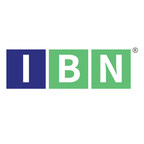
 Fintech PR6 days ago
Fintech PR6 days agoOutsourced Accounting Service: The New Standard for Business Finance Industry
-

 Fintech PR6 days ago
Fintech PR6 days agoBybit Launchpad Onboards Xterio, Opening up Opportunities in Blockchain Gaming for Users
-

 Fintech PR6 days ago
Fintech PR6 days agoCKGSB Professor Mei Jianping Launches Global Indices Tracking Impressionist, Contemporary, and Chinese Art Markets
-
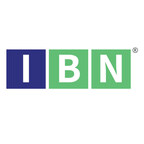
 Fintech PR6 days ago
Fintech PR6 days agoIBN Technologies Sets the Benchmark in Financial Management Accounting Excellence
-
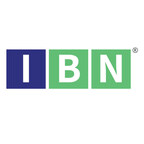
 Fintech PR7 days ago
Fintech PR7 days agoIBN Technologies LLC Steps in to Support Clients After Bench Accounting’s Unexpected Closure
-

 Fintech PR5 days ago
Fintech PR5 days agoDayOne Launches as an Independent Global Data Center Pioneer Following Series B Funding Closure
-

 Fintech PR6 days ago
Fintech PR6 days agoGES Completes Sale to Truelink Capital
-

 Fintech PR3 days ago
Fintech PR3 days agoBybit x Block Scholes Report: BTC Options Steady with Call-Put Parity, ETH Braces for Short-Term Volatility



